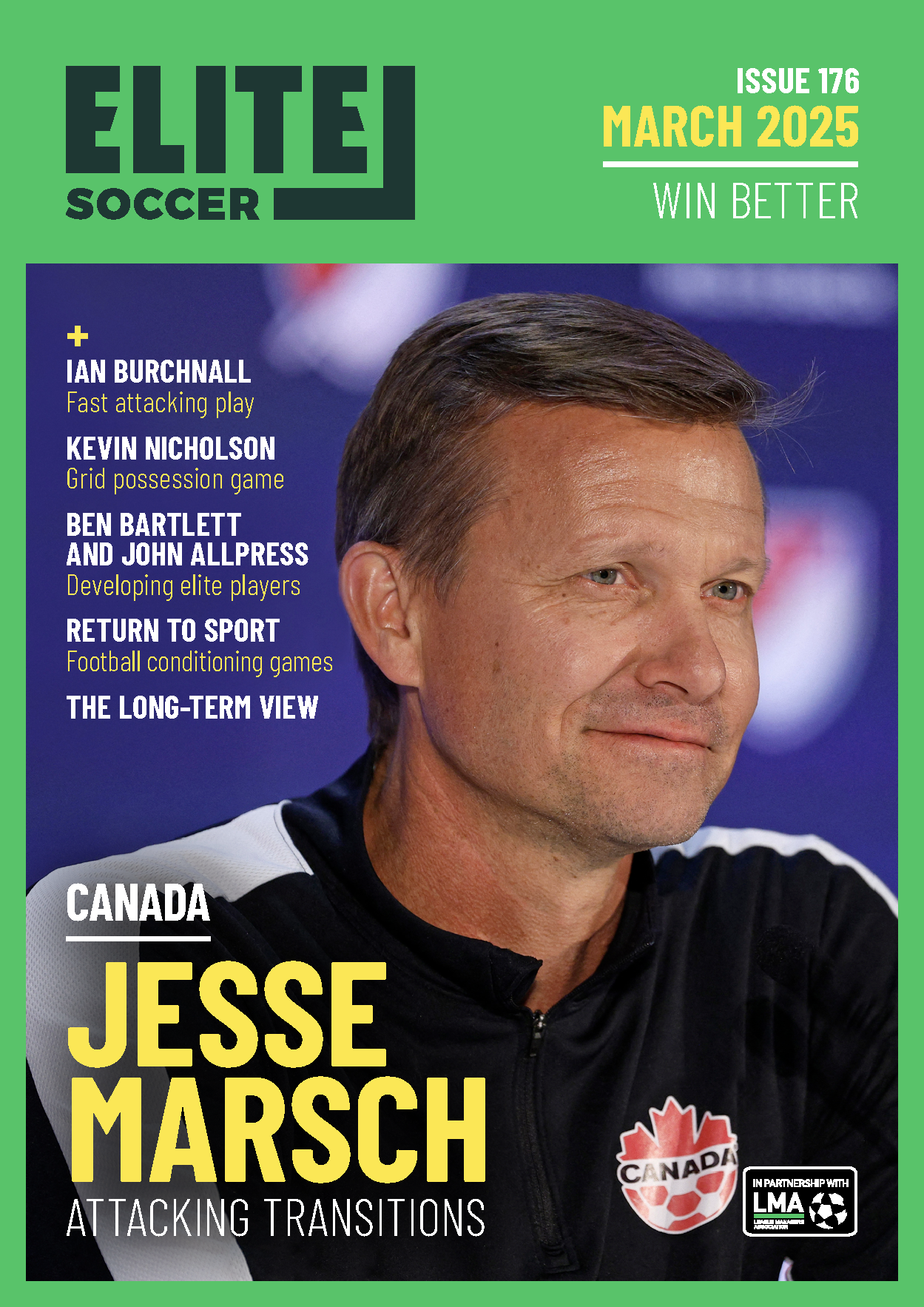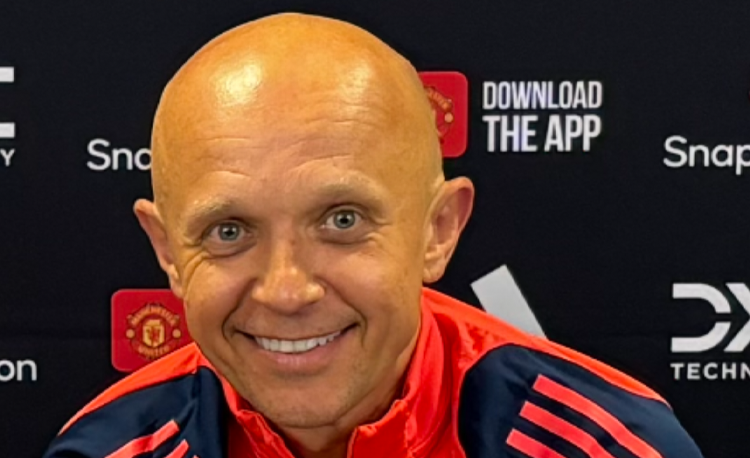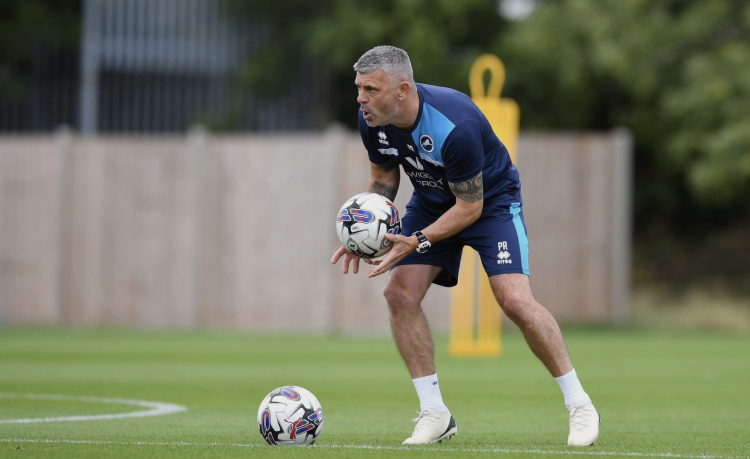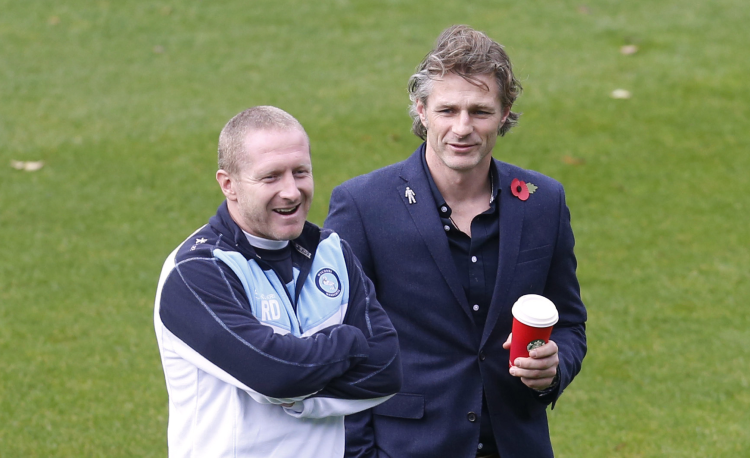On the Level
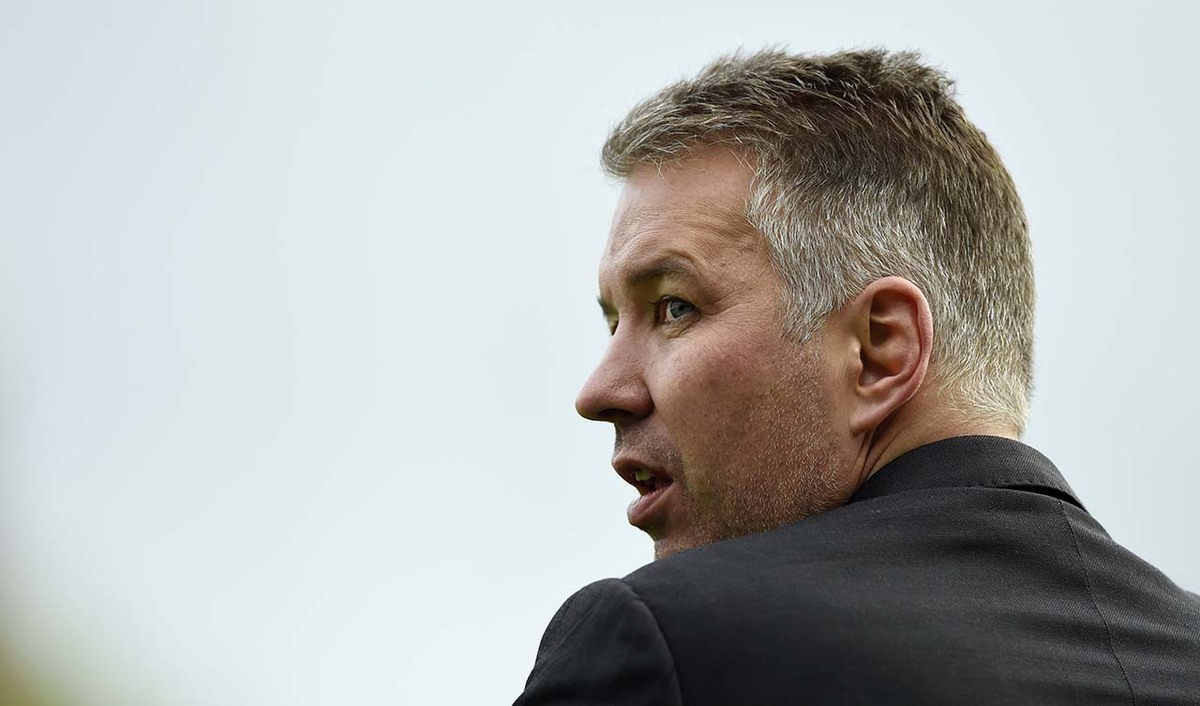
From successive promotions with Peterborough to tough times at Preston North End, Darren Ferguson has ridden the managerial rollercoaster and, he says, he’s better for it…
At just 46, Darren Ferguson is more than 560 games into his management career, and believes he still hasn’t realised his full potential. “I haven’t yet met the career goals I’ve set myself,” he says.
A surname like Ferguson is always going to be met with high expectations, and Darren felt he had something to prove right from the start.
When he got his first management opportunity, as player-manager of then League Two side Peterborough United in 2007, some questioned whether he had the experience to carry the club forward. However, the six years he spent as a player and player-coach at Wrexham stood him in good stead.
“As soon as it looked likely that long-time manager Denis Smith was going to leave Wrexham, I began to prepare,” says Ferguson. “I always thought I should be half ready in case the opportunity to manage the club came my way.”
His first management opportunity, however, presented itself at Peterborough United, where he was appointed player-manager. “I was determined to show that I was worthy of the role,” he says, “not least because I thought that if I didn’t make a success of it, it would probably be my first and last chance.”
WINNING THEM OVER
His first job, he realised, would be to gain the respect and trust of the players, some of whom were not much his junior. “The first meeting you have with the players is crucial and I remember when I first met with the team at Peterborough, I knew I’d need to appear confident,” says Ferguson. “I felt it went really well and over the first few months I was able to gain their respect and get them to buy into what I wanted to do.
“In the early days of my career, I wanted to do everything myself, but with experience I’ve become better at delegating, and that’s easier to do when you have great staff around you, who share your work ethic,” he says.
“Specialist professionals, such as physiotherapists and fitness coaches, are now such an important part of a club, and I recognise that they know more about their areas of expertise than I do.
“I’ll make it clear to them that I’m not going to come in and tell them how to do their jobs. Clarity in terms of people’s remits and responsibilities is very important, as it means there’s no confusion and everyone understands the value of their role.”
He adds that he’s never wanted to surround himself with people who would just nod and agree with his point of view. “I’ll always ask for the opinions of my staff and players, because those views are valuable to me and it shows them that they’re important,” he says.
“In my experience, when you give people trust and respect you get it back in bucket-loads. I’ll go away and make the final decisions myself, but the players know that I always have them front of mind. Players also really appreciate honesty, so when I have to leave a player out of the team I’ll take them aside and explain why. They don’t always like it, but they always appreciate the openness and reasoning.”
UPPING THE GAME
During his time at Peterborough, Ferguson made the decision to give up his own place on the team almost immediately, because he realised that he would be so focused on what the other players were doing in training that he wouldn’t be able to concentrate on his own performance. “I didn’t want to play if I couldn’t be my best,” he says, “so that was the end of my playing career. But I didn’t miss it, because I found I enjoyed managing far more.”
He and his assistant, Kevin Russell, who he’d brought with him from Wrexham, set about introducing a defined structure at Peterborough, and looked for ways to raise the standards of professionalism. “Things were done in quite an ad hoc way at the time, so it was relatively easy to see where I could make changes that would have a big impact on the way everyone worked,” says Ferguson.
The changes that he implemented bore fruit, and with the support of Barry Fry as Peterborough’s director of football, Ferguson went on to achieve successive promotions in his first two seasons as manager.
“Barry had many years of experience behind him, so it was invaluable to have his advice and reassurance,” says Ferguson. “He also dealt with business away from the pitch, so I could focus fully on managing the players. He could see that I was determined to raise standards and that I was prepared to be open and honest about what I felt we needed to achieve that.”
VALUABLE LESSONS
Having found success at Peterborough and settled in with relative ease, Ferguson was met with a whole different challenge when he arrived at Preston North End in 2010.
He admits that his year with the Championship side was his toughest yet as a manager, and he was less comfortable at the club from the start. “I remember my first meeting there and how, despite everything I’d achieved in my first two years in management, I felt on edge. The whole environment was different to what I was used to and the level of experience in the team was far higher than I’d dealt with before.”
While Ferguson had joined Preston wanting to help the team rise to the Premier League, he quickly realised it might be challenge enough keeping them in the Championship. It was a difficult period, beset with, among other things, a slashed budget and a change of chairman, but Ferguson also recognises his own mistakes and has used the whole experience to keep improving as a leader and manager.
“Looking back, I can see that, while I had earned the players’ respect and buy in by the time I left Preston, I wasn’t able to do so in that crucial early period,” he says. “But a big part of leadership is learning along the way, and you learn more from your mistakes than your successes. In retrospect, I’m really glad I had that tough year, because the learning curve was steep, especially in terms of dealing with experienced players. I learned, for example, that there’s a balance to be struck between sticking to your guns and taking on board the views of the players, and that you shouldn’t sway too much from your plans.”
He left the club in 2010, but six months later found himself back in the driving seat at Peterborough, then in League One, and wasted no time working his magic on the side again. He led them to a play-off promotion, finishing as the top-scoring side in the country. After two seasons in the Championship, Peterborough were unlucky to drop back to League One with a total of 54 points – the highest by a relegated team in Championship history, and Ferguson left the club in 2015.
Eight months later, he was announced as manager of League One side Doncaster Rovers, who after dropping back to League Two in 2015-16 achieved promotion to League One under Ferguson’s leadership. He left the club in June 2018, having guided them to a respectable 15th place finish.
BALANCE AND PRAGMATISM
Ferguson has seen enough so far in his career to understand the importance of mental strength and resilience in weathering any storms that come the manager’s way.
“You can’t allow yourself to get carried away on the rollercoaster of football management,” he says. “My family is great at keeping me level-headed and grounded. That normality and honesty is so important. Sometimes a few words from someone you trust and care about is all you need.”
Looking after your health and wellbeing as a manager is also key, he adds, not least because it helps you to maintain balance, which is essential when dealing with problems and trying to find solutions. Ferguson starts the day early and hits the gym before taking to his office.
“It’s something I’ve done throughout my management career, because it focuses my thoughts and gets me in the right mindset.”
“I just tend to just get on with things,” he says, “and you have to be able to do that, especially when things are tough and you face a challenge. I’ve been brought up to work hard, step over any obstacles and move on.” And driving him on is his love of developing the players in his charge. That, ultimately, is what he and everyone else at the club are there to do.
“I make it clear to my staff that our remit is simple – we have to help every player in the squad improve, whether they’re 19 or 34. By the time they leave the club, for whatever reason, they have to be better than when they arrived. The players quickly see that we’re investing time into them as individuals, and that helps to motivate them and shows them that they’re valued.”
Now, Ferguson is investing in his own future, visiting clubs to watch and learn from other managers and taking lessons to improve his Spanish, should the opportunity to work abroad arise. “I’m looking forward to getting my teeth into a new challenge and fulfilling my potential as a manager.”
Editor's Picks
Attacking transitions
Deep runs in the final third
Using the goalkeeper in build-up play
Intensive boxes drill with goals
Penetrating the final third
Creating and finishing
My philosophy
Pressing initiation
Compact team movement
Coaches' Testimonials

Alan Pardew

Arsène Wenger

Brendan Rodgers

Carlos Carvalhal

José Mourinho

Jürgen Klopp

Pep Guardiola

Roy Hodgson

Sir Alex Ferguson

Steven Gerrard
Related
Shooting and movement
Crossing, finishing and defending
Playing forward in possession
Coaches' Testimonials

Gerald Kearney, Downtown Las Vegas Soccer Club

Paul Butler, Florida, USA

Rick Shields, Springboro, USA

Tony Green, Pierrefonds Titans, Quebec, Canada
Join the world's leading coaches and managers and discover for yourself one of the best kept secrets in coaching. No other training tool on the planet is written or read by the calibre of names you’ll find in Elite Soccer.
In a recent survey 92% of subscribers said Elite Soccer makes them more confident, 89% said it makes them a more effective coach and 91% said it makes them more inspired.
Get Monthly Inspiration
All the latest techniques and approaches
Since 2010 Elite Soccer has given subscribers exclusive insight into the training ground practices of the world’s best coaches. Published in partnership with the League Managers Association we have unparalleled access to the leading lights in the English leagues, as well as a host of international managers.
Elite Soccer exclusively features sessions written by the coaches themselves. There are no observed sessions and no sessions “in the style of”, just first-hand advice delivered direct to you from the coach.



